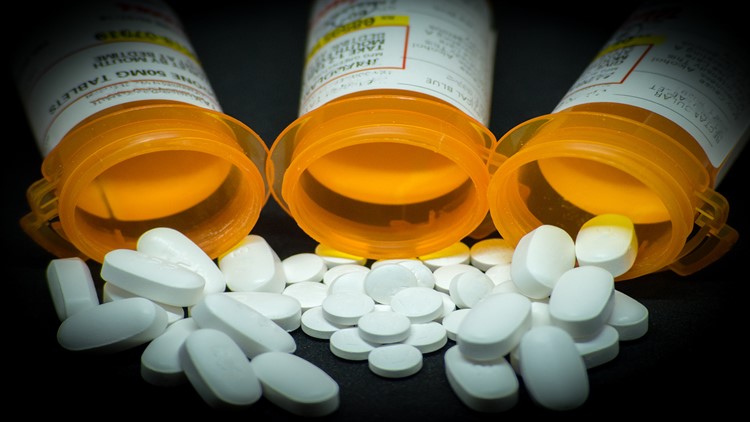Jefferson County is trying something new to help inmates battling drug addiction get clean and continue treatment even after they get out of jail.
This week, Sheriff Jeff Shrader announced a new program that allows inmates at the Jefferson County Jail to participate in voluntary medication-assisted treatment (MAT), with the help of a drug called Vivitrol.
“It’s a medication that blocks the neuro-receptors and cuts out the craving or the highs of opiate use,” explained Captain Ron Leonard, who oversees the medical and support operations of the Detention Division.
“Over the last two years, the number of inmates that we’ve had to put through withdrawal protocols has gone up 89 percent,” Leonard said, adding about 300 inmates go through Jefferson County’s opioid withdrawal protocols each month.
But going through detox is only the first step of treatment.
“People can go through this process and everything can be going great. Then all of a sudden they can hit a bump in life and they can regress,” he said.
Eligible inmates can now join the MAT program. They must clear a psychological and medical test to be sure they are able to accept the treatment plan first. Once they complete withdrawal protocols and before they are released from jail, inmates will get their first voluntarily injection of Vivitrol.
“It helps people that have either detoxed from opioids or alcohol to have their cravings suppressed so that hopefully they won’t relapse and go back to using either alcohol or opioids,” explained Robert Valuck, a professor at the University of Colorado Skaggs School of Pharmacy and Pharmaceutical Sciences.
Valuck also serves as the Director of the Colorado Consortium for Prescription Drug Abuse Prevention. He said Vivitrol only needs to be administered once a month and it’s not addictive.
“One of the highest risk periods that anyone can face is immediately after incarceration going back to their community, their home, their prior social environment,” he said. “The risk of overdose death is highest in the first two weeks after somebody is released from jail.”
The drug is expensive. Valuck said it can cost about $1,500 each dose. But he compares that to other costs facing people fighting addiction.
“If they overdose and are taken by ambulance to the emergency room, an ambulance ride may cost a few thousand dollars, the ER maybe ten or fifteen thousand dollars. They might be admitted a day or two, and that costs fifteen or thirty thousand dollars,” he offered as an example. “If someone does that a few times a year, that makes the drug looks cheap.”
Jefferson County said the pharmaceutical company that makes Vivitrol covers the cost of the first injection for eligible inmates. After that, the goal is for the inmate's health insurance company to help with costs – or enroll them in Medicaid. Captain Leonard said the Jail Based Behavioral Health Services (JBBS) will also cover some costs.
Jefferson County partners with Correct Care Solutions, which provides medical and psychiatric health services to those in jail and also connects inmates after they are released to providers in the community.
“The goal of providing Vivitrol to eligible inmates is twofold. In addition to helping prevent their relapse into opioid addiction after their release, we also hope to end the cycle of recidivism for as many as possible of the approximately 75 percent of our inmates who have a substance abuse problem,” explained Sheriff Shrader in a press release about the program on Thursday.
The Adams County Sheriff’s Office also launched a similar program this month.
“We’re hoping we have a societal impact,” Leonard said. “Not just reducing our population inside the jail, but that we can make an impact on society as a whole.”



